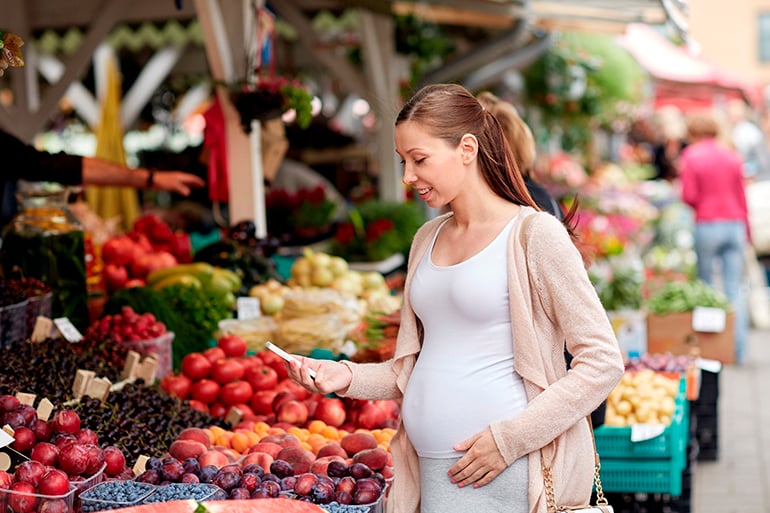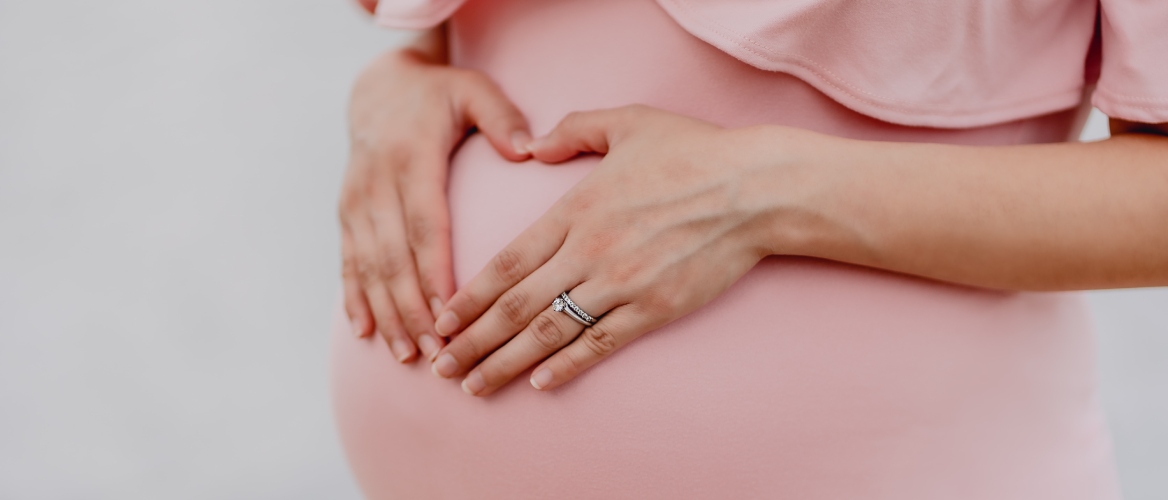March 3, 2025
March 15, 2022
Your body during pregnancy is a literal machine, nurturing life from the moment of conception until birth and beyond if you choose to breastfeed or pump. But all of the extra blood, sweat and baby can also leave you tired, both physically and mentally.
In addition to listening to your body’s cues, moving regularly and getting good rest while reducing stressors, adding some energy foods during pregnancy to your diet can reduce inflammation, promote healthy fetal development and up your energy levels. If you’re “eating for two,” make it healthy and with a zing of nutrients!
In general, foods that are rich in protein, iron and fiber are good for both building and maintaining energy during the gestational period, as well as staying away from foods that make you “crash”, such as sugar and processed food.
The list of energy foods during pregnancy below is by no means exhaustive. If you’re concerned about your diet during pregnancy, always consult with your doctor or a dietician specialized in prenatal nutrition.
There are three major nutrients that you’ll need, according to experts:
- Lots of protein: Protein packs in a lot of energy-boosting amino acids, which in turn help your baby’s development. Protein can be found in milk, cheese, eggs, lean meats and poultry, tofu- and soy-based products, quinoa, nuts and seeds and legumes.
- Complex carbohydrates: If you’re tempted to eat a big bowl of pasta or a sandwich, remember that complex carbohydrates are great for giving you a boost. Choose whole-grain options, fresh vegetables and fruits or dried beans or peas.
- Iron-rich foods: Your fatigue is likely from the energy it takes to grow a baby, but your iron levels could also be depleted. Healthy sources for iron-rich foods include iron-fortified cereals, dried fruits, spinach, canned sardines, eggs, lean red meat, cooked shellfish and lentils.
- Lots of water: Staying hydrated will help you carry the nutrients to your cells and to your baby. Keep a water bottle nearby and keep drinking!

The benefits of the Mediterranean diet during pregnancy – is there a link?
Renowned for its health benefits, the Mediterranean diet is an ancient way of eating seasonal, heart-friendly foods that originate from the countries and cultures that border the body of water of the same name, like Spain.
At the baseline, a Mediterranean diet includes a lot of nuts, extra virgin olive oil, fruits and vegetables, whole grains and legumes, with a moderate intake of fish, poultry and dairy. Those who follow the diet also limit their intake of red meat, fatty foods and sugar.
There are two standouts in the Mediterranean diet that help combat fatigue in pregnancy: extra virgin olive oil, and nuts. Both provide antioxidants and healthy fats to keep you moving, so drop the donut for some almonds. And an added bonus? The Mediterranean diet can help prevent gestational diabetes.
That said, there isn’t enough scientific evidence to support that a strict Mediterranean diet is the best food choice for your pregnancy. But it is healthy, packed with nutrients and will give you the energy you need to support a growing belly.
Spanish foods and dishes that will become your pregnancy super foods
If you live in Spain and eat a balanced diet, staying healthy during your pregnancy shouldn’t be too difficult or a stretch, and ingredients are easy to come by. In my experience, I felt healthier than ever when I was pregnant with my two boys, now 2 and 5.
Legumes: This plant-based food group includes lentils, beans, chickpeas and the like. Legumes make up a large portion of the Spanish diet, particularly in stews and hearty dishes. The benefits – apart from feeling full – are loads of fiber, folates that are crucial for development, protein, iron, calcium and zinc. The standouts here are the folates, particularly in early pregnancy when the spinal cord is developing, and zinc, which is believed to prevent pre-term labor.
Puchero or cocido madrileño, lentejas or fabada are legume-based dishes that are packed with nutrients (and perfect for cold weather!) and staples of the Spanish diet.
Dairy: Not only do most dairy products provide you with calcium but sneaking more into your diet means that you’ll get high-quality proteins like whey and casein, in addition to other benefits: magnesium, zinc and vitamin B, all of which help promote safe fetal growth and development.
Try swapping in foods like Greek yogurt, milk or cheese. Do note that dairy products are considered safe only when pasteurized, so read the nutrition label or ask a server.
Fish: Don’t skip fish! Many women choose not to eat fish during pregnancy because of mercury levels or the fear of listeria (stay away from fish that are considered predators, like tuna or swordfish). But several types and the correct preparation will help promote brain development. Try salmon, cooked shellfish and white fish to load up on nutrients.
Fruits and Vegetables: Eating fruits and vegetables is a given during pregnancy, and some women find themselves with specific cravings from this food group (mine was watermelon!). If you have to choose, broccoli, avocadoes, mangoes, spinach, apples and sweet potatoes all have additional benefits in brain and body development, and bananas are a quick fix for nausea!
Quick foods and snacks: If you need a small boost, drink some water and have some nuts or seeds, particularly walnuts. Another alternative is apple slices with nut butter for a combo of carbs, protein and good fats. Oatmeal and eggs are other quick and easy options to boost your energy levels.

Other tips and tricks to combat pregnancy fatigue
Fatigue can be partially due to anemia, dehydration, or even chowing down on larger meals. When you’re pregnant, most doctors will suggest eating smaller meals more frequently. I was traveling quite a bit for business when pregnant with both of my children, so having iron-rich snacks and fresh fruit on me at all times went into my per diem budget – my feet were often more tired than the rest of me during long days at conferences!
The takeaway
When I became pregnant with my elder son, I was concerned that I hadn’t been taking antenatal vitamins like all my friends with kids had popped them several months prior to conception. My doctor assured me that I would be fine because of my variable diet that was rich in nutrients and iron, and it kept my weight to a manageable level. What’s more, I craved fish, nuts and fruit more than normal. Choosing to grab a handful of nuts when I felt nauseous or like my energy levels were dipping helped, and I kept bags of walnuts at my desk and in my purse. In the end, my pregnancies were a time where I was more in tune with my body’s needs, and I got two healthy boys as a result!
|
If you are searching for health insurance in Spain, Caser Expat Insurance has the right policy for you! |
.png?width=344&height=67&name=logo_caser%20(2).png)








Let Us Know What You Thought about this Post.
Put your Comment Below.